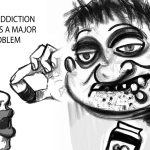
POST COVID-19 ADVOCACY
 As part of its Post-COVID19 Social Recovery Program, Caritas Manila is spearheading a community and parish-based initiative dubbed as the “GEN 129 MOVEMENT”. Grounded on the scriptural passage GENESIS 1:29, this movement highlights the spirituality that God provided for us humans (made in His image), and our offspring, to be fed by providing plants and trees that would reproduce themselves. In addition, humans would learn to access the seeds of those fruits and vegetables to grow more and more food for us, generation after generation. God has been providing for mankind from the very beginning; and it is incumbent for us to be responsible stewards of God’s gift of creation.
As part of its Post-COVID19 Social Recovery Program, Caritas Manila is spearheading a community and parish-based initiative dubbed as the “GEN 129 MOVEMENT”. Grounded on the scriptural passage GENESIS 1:29, this movement highlights the spirituality that God provided for us humans (made in His image), and our offspring, to be fed by providing plants and trees that would reproduce themselves. In addition, humans would learn to access the seeds of those fruits and vegetables to grow more and more food for us, generation after generation. God has been providing for mankind from the very beginning; and it is incumbent for us to be responsible stewards of God’s gift of creation.
To highlight the social significance of this movement, this venture envisions a combination of URBAN and RURAL Farming Initiatives (in partnership with parishes, urban communities and agri-cooperatives) whose main thrusts include:
ADDRESSING FOOD SECURITY – when COVID-19 quarantine restrictions hampered the food supply in Metro Manila, we realized the need to sustain food security in various communities in the metropolis. In fact, “one recent survey found that 51 countries do not have enough urban area to meet a recommended nutritional target of 300 grams per person per day of fresh vegetables. Moreover, it estimated, urban agriculture would require 30 percent of the total urban area of those countries to meet global demand for vegetables” (Prof. Miguel Altieri, U.C. Berkeley). Thus, in providing vacant spaces within parishes and Caritas Manila partner communities for edible landscaping, green riprapping, hydroponics and container gardening (vertical gardening); we can be assured of ready source of food, especially vegetables when their supply and distribution get affected by unforeseen events and force majeure in the nearby production areas. “The LORD God took the man and put him in the Garden of Eden to work it and take care of it” (Genesis 2:15). Through these directives, food and nature is given a whole new meaning to humanity; food is not only a source of health and sustenance but also an integral part of humanity’s affiliation to creation and God. It is simply not enough to be given food, God desired for us to know its source and be part of its production.
CURBING URBAN & RURAL POVERTY – with the increase in urban poverty, food uncertainty and malnutrition in urban areas, renewed interest arises in alternative strategies for improving urban livelihoods. Urban Farming is an essential source of revenue for a substantial number of urban households. In addition to the income from sales of surpluses, urban farming households save on household expenses by growing their own food, which can be considerable since poor people generally spend a sizeable part of their income (50–70%) on food. Urban Farming also augments the growth of microenterprises in the production of necessary agricultural inputs (e.g. fodder, compost, earthworms), the processing, packaging and marketing of products (based on a study by Homem de Carvalho) and the provision of services such as transportation (based on a study by Moustier and Danso). As for Rural Farmers, our capacity to create a new agri-value chain without “middle-men” in the creation of available, affordable and accessible distribution channels for our farmers and agricultural cooperatives within various parishes and communities in urban areas shall significantly raise the income for poor farmers in rural areas.
“Plant your seed in the morning and keep busy all afternoon, for you don’t know if profit will come from one activity or another — or maybe both” (Ecclesiastes 11:6).
INTENSIFYING ENVIRONMENTAL ADVOCACY – “You shall not pollute the land in which you live, for blood pollutes the land, and no atonement can be made for the land for the blood that is shed in it, except by the blood of the one who shed it. You shall not defile the land in which you live, in the midst of which I dwell, for I the LORD dwell in the midst of the people of Israel” (Numbers 35:33-34). Urban farming may also encouragingly impact on the greening of our barangays and communities, the enhancement of the urban microclimate (e.g. wind breaks, dust reduction, shade) and the preservation of biodiversity. They may also diminish the city’s ecological footprint by producing fresh foods close to the consumers, thereby decreasing energy use for transport, packaging and cooling, among others. Moreover, urban farming creates beauty and a sense of calm, which can be difficult to find in a busy city. Urban greening helps our physical and mental health, as well as counterbalancing some of the carbon emissions creating in the local area that would otherwise contribute to climate change.
ENSURING PHYSICAL WELLNESS – urban farming promotes a plant-based diet; and as such improves one’s physical wellness through good health and lifestyle. In a book entitled, “THE CHINA STUDY” (composed of 417 pages) T. Colin Campbell, PhD, and his son, Thomas M. Campbell II, MD, asserts through 367 variables, 65 counties in China, and 6,500 adults — that there are more than 8,000 statistically significant associations between lifestyle, diet, and disease variables. In fact, Caldwell B. Esselstyn, Jr., M.D., a physician and researcher at the best cardiac center in the US, The Cleveland Clinic, treated 18 patients with established coronary disease with whole foods, plant-based diet. Not only did the intervention stop the progression of the disease, but also 70 percent of the patients saw an opening of their clogged arteries. Dr. Dean Ornish, a graduate of Harvard Medical School, completed a similar study with consistent results. This is actually encouraging — heart disease can be reversed.
And CARING FOR GOD’S CREATION – to engage in urban farming is planting with a purpose. Psalm 24 states that “the Earth is the Lord’s and all that is in it, the world, and those who live in it.” We are occupants here, called to care for the creation on behalf of future generations and all species. The Holy Scriptures calls us to “till and keep the garden” and names man as the guardians of creation. Because God fashioned all the Earth and all of us, creation is stunning and good and sacred. We are called by our piety to God and our love for God’s works to safeguard it. Creation mirrors God’s glory: “Ever since the creation of the world, his invisible attributes of eternal power and divinity have been able to be understood and perceived in what he has made.” (Romans 1:20) We honor God by preserving what he has created and being good stewards of the earth.
————————-oOo——————————
For any personal comments or suggestions, you may call 0917-4805585 or email me at [email protected].















